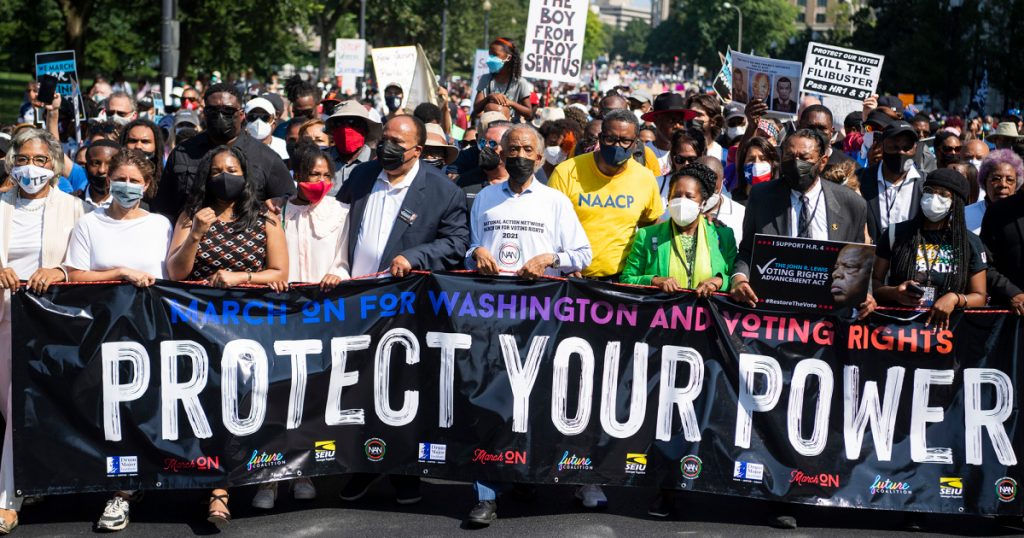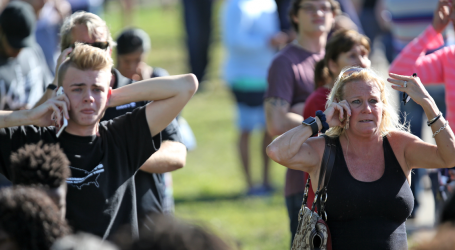Voting Rights Marches Draw Crowds, But They’re Losing the War
Voting rights supporters rally in Washington, DC, on Saturday.Tom Williams/Congressional Quarterly via ZUMA Press
Fight disinformation. Get a daily recap of the facts that matter. Sign up for the free Mother Jones newsletter.On Saturday, the 58th anniversary of Martin Luther King Jr.’s March on Washington, thousands of supporters of voting rights held major marches on Saturday in Atlanta, DC, Phoenix, and dozens of other locations across the country. On the National Mall, King’s son, Martin Luther King III, was among the marchers advocating for the Senate to pass the John Lewis Voting Rights Act, which advanced through the House on Tuesday:
John Lewis’s work is still unfinished and my father’s dream is still unrealized, and so today we march for the John Lewis #VRAA and the #ForThePeopleAct. #VotingRightsMarch pic.twitter.com/cHcEpCfZDn
— Martin Luther King III (@OfficialMLK3) August 28, 2021
It was an impressive showing, and a demonstration of just how high of a priority small-d democratic protections are to a significant section of the Democratic Party’s base. But it was also a bit of a reality check. It’s been more than eight months since the party won two special elections in Georgia, and with them full control of Congress. And roughly the same amount of time has elapsed since a failed coup attempted to overturn the results of a presidential election by variously throwing out millions of legally cast votes and threatening the national legislature itself.
In that time, as the march’s organizers note, Republicans in state capitols across the country have used Democrats’ electoral successes as an impetus to crack down on voting rights. Governors in Florida and Arizona have signed restrictive bills into law. In Texas, Democrats managed to block a quorum—and passage of a bill that would roll back voting rights—for an entire special legislative session by fleeing to Washington, DC. But eventually, enough members returned to work for a second session that the state House of Representatives was finally able to advance a voter suppression bill on Friday.
There is enthusiasm on the ground to counter the right’s undemocratic turn, but the post-January scoreboard on this is notably one-sided. And there’s an obvious explanation for why: Conservatives have simply been more willing to use their majorities to do what they want. Republicans have employed the legislative filibuster to block voting-rights bills from even coming to a final vote in the Senate—taking advantage of rules that the Democratic Senate majority could simply change if it wanted to.
After the most recent effort was blocked, Senate Majority Leader Chuck Schumer promised to renew a voting-rights push in September, when the chamber returns from recess. The weekend’s marches show the strength of voting-rights organizing. But as Sherrilyn A. Ifill, the president and director-counsel of the NAACP Legal Defense and Educational Fund, told the New York Times recently, “We cannot litigate our way out of this and we cannot organize our way out of this.”





